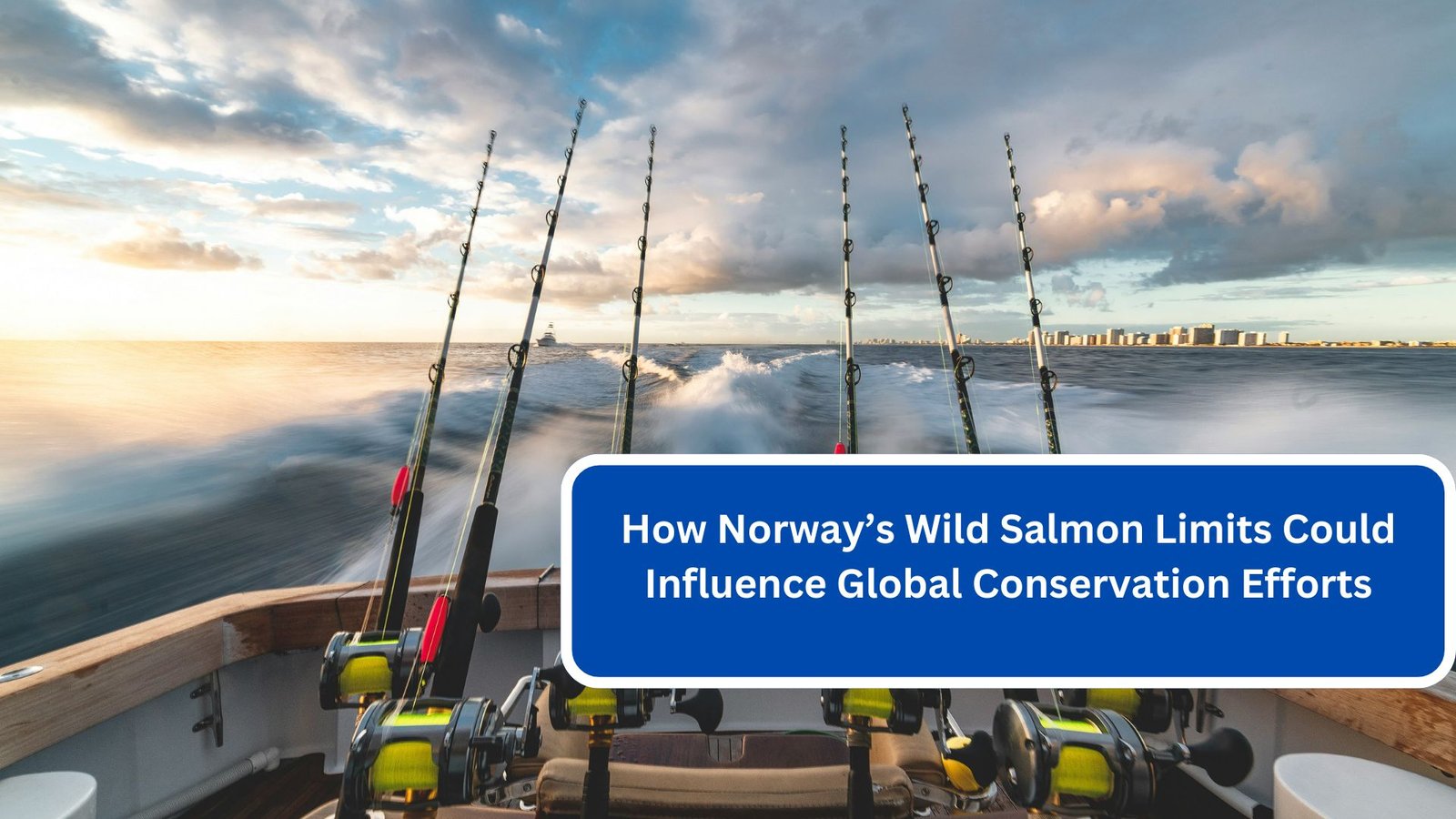Norway’s commitment to sustainable management of its wild salmon populations through fishing restrictions is not just a national issue; it has implications that resonate globally. As one of the world’s leading countries in fishery management, Norway’s actions set a precedent for how nations can approach conservation efforts in the face of environmental challenges. This article explores how Norway’s wild salmon limits could influence global conservation efforts, focusing on ecological, economic, and policy implications.
Understanding Norway’s Wild Salmon Management
Norway is known for its pristine rivers and rich marine ecosystems, which support some of the most sought-after wild salmon populations. In recent years, the country has faced significant challenges due to declining salmon stocks. Factors such as climate change, habitat loss, and overfishing have prompted the Norwegian government to impose stricter regulations on wild salmon fishing.
Key Restrictions Implemented
The new regulations include seasonal fishing limits, reduced bag limits for anglers, and catch-and-release policies in specific areas. These measures aim to restore salmon populations while allowing for some recreational fishing opportunities. By prioritizing conservation, Norway is taking a proactive stance on the future of its natural resources.
The Ecological Impact of Norway’s Restrictions
Norway’s actions serve as a case study in how effective management can lead to healthier ecosystems. Here’s how these restrictions could influence global conservation efforts:
Enhancing Biodiversity
By limiting salmon fishing, Norway aims to ensure the sustainability of salmon populations, which play a crucial role in their ecosystems. Healthy salmon stocks contribute to biodiversity, supporting various species that rely on salmon as a food source. This focus on maintaining ecological balance can inspire other nations to adopt similar practices to enhance biodiversity within their aquatic environments.
Setting a Precedent for Other Nations
Norway’s commitment to salmon conservation sends a clear message to other countries facing similar ecological challenges. It demonstrates that proactive measures can yield positive results, encouraging nations to prioritize sustainable practices. Countries with declining fish stocks can look to Norway as a model for effective management strategies.
Strengthening Habitat Protection
The restrictions on salmon fishing underscore the importance of protecting natural habitats. By focusing on habitat conservation—such as maintaining clean water and preserving spawning areas—Norway sets an example for global conservation efforts. This emphasis on habitat preservation can inspire similar initiatives worldwide, leading to improved ecosystems and biodiversity.
Economic Considerations in Conservation
The economic ramifications of Norway’s restrictions are significant, not just locally but on a global scale. Here’s how these economic considerations could influence conservation efforts elsewhere:
Balancing Economy and Ecology
Norway faces the challenge of balancing its fishing industry with conservation needs. By implementing these restrictions, the government aims to ensure long-term sustainability rather than short-term gains. This approach could encourage other nations to consider the long-term economic benefits of conservation, ultimately leading to healthier ecosystems and sustainable industries.
Promoting Eco-Tourism
As recreational fishing opportunities evolve due to these restrictions, Norway has the chance to promote eco-tourism. Anglers and nature enthusiasts may be drawn to the country’s pristine environments, eager to engage in responsible fishing practices. This shift toward eco-tourism can serve as a blueprint for other nations, showcasing how conservation efforts can generate economic benefits through sustainable tourism.
Supporting Local Communities
Engaging local communities in conservation efforts is vital for successful implementation. Norway’s regulations provide an opportunity to involve local fishers and communities in discussions about sustainable practices. This model can inspire global initiatives that prioritize community engagement, ensuring that conservation measures are socially and economically beneficial.
Policy Implications and Global Influence
The policies implemented in Norway have far-reaching implications for global conservation efforts. Here’s how these policies could inspire change worldwide:
Encouraging International Collaboration
Norway’s approach to salmon conservation highlights the need for international cooperation. Many fish species migrate across borders, making it essential for countries to work together on sustainable management practices. Norway’s experience can pave the way for collaborative agreements focused on shared resources, leading to more comprehensive conservation strategies.
Influencing Global Standards
As a leading nation in sustainable fisheries management, Norway has the potential to influence international standards for fishing practices. By advocating for responsible management at global forums, Norway can help shape policies that prioritize conservation and ecological health. This influence can lead to widespread adoption of best practices, ultimately benefiting global fisheries.
Promoting Research and Innovation
Norway’s emphasis on research and monitoring can inspire other nations to invest in similar initiatives. By promoting scientific studies on fish populations and ecosystem health, Norway sets an example for data-driven conservation efforts. This focus on research can encourage other countries to adopt evidence-based practices, leading to more effective management strategies.
Challenges Ahead
Despite Norway’s proactive measures, challenges remain. Climate change continues to threaten salmon habitats, and addressing these broader environmental issues will require collective action. Here are some of the challenges that could impact global conservation efforts:
Climate Change Adaptation
As temperatures rise and weather patterns shift, fish populations will face new challenges. Norway’s restrictions alone cannot combat the broader effects of climate change. Global cooperation and adaptive management strategies will be essential to address these issues.
Resistance to Change
Implementing new regulations can be met with resistance from local fishers and industries. Engaging stakeholders and demonstrating the long-term benefits of conservation will be crucial in overcoming opposition. Building trust and cooperation among all parties will be essential for successful implementation.
Need for Comprehensive Strategies
While Norway’s restrictions focus on wild salmon, a comprehensive approach to conservation must address multiple species and ecosystems. This requires coordinated efforts across various sectors, including agriculture, urban development, and fisheries. A holistic approach can lead to more sustainable outcomes.
Conclusion
Norway’s wild salmon fishing restrictions represent a critical step toward sustainable fisheries management and environmental conservation. The ecological, economic, and policy implications of these measures have the potential to influence global conservation efforts significantly. By setting an example of proactive management, Norway demonstrates that prioritizing sustainability can lead to healthier ecosystems and stronger local economies.
As the world faces mounting environmental challenges, Norway’s approach offers valuable insights into the importance of conservation. By embracing collaborative efforts, investing in research, and promoting sustainable practices, nations around the globe can work together to protect their natural resources for future generations. The journey toward sustainability may be complex, but the potential rewards—biodiversity, economic stability, and resilient ecosystems—make it a worthy endeavor.

